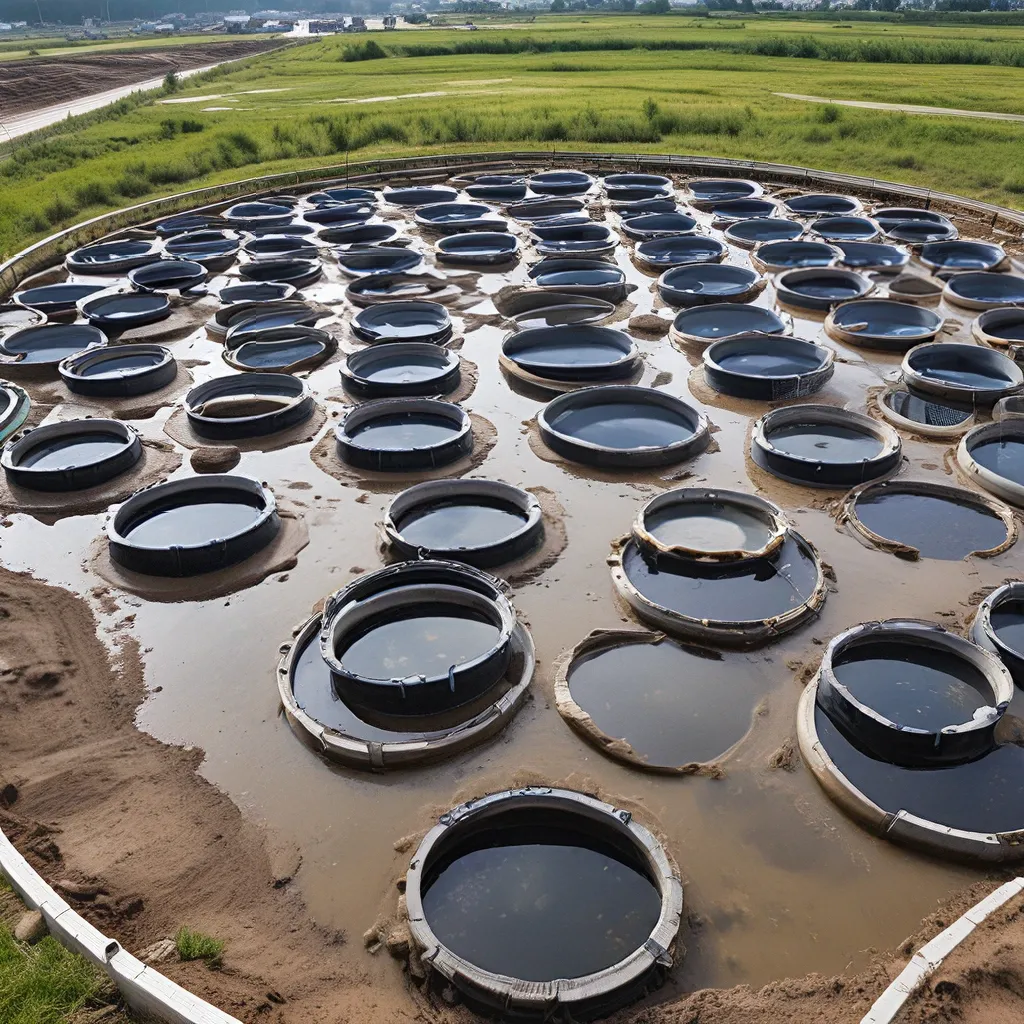
Unlocking the Potential of Wastewater: A Sustainable Treasure Trove
As I delve into the fascinating world of wastewater treatment, I can’t help but feel a sense of wonder and excitement. You see, this unassuming stream of used water holds the keys to a more sustainable future – if only we’re willing to unlock its secrets.
Imagine, for a moment, a world where our waste doesn’t end up in landfills or oceans, but rather transforms into a bounty of valuable resources. This is the promise of the circular economy, and wastewater treatment is at the heart of this revolutionary approach.
I’ve been exploring the cutting-edge research and innovative strategies that are redefining how we view and manage our wastewater. And let me tell you, the possibilities are truly mind-boggling. From the recovery of precious metals to the creation of biofuels and the production of high-value chemicals, the untapped potential of this “waste” is enough to make your head spin.
Reclaiming the Riches: Valorization Strategies in Action
One of the most promising avenues for transforming wastewater into valuable resources is through valorization strategies. These innovative approaches aim to extract and repurpose the valuable materials and compounds that are often discarded or overlooked in traditional wastewater treatment processes.
Recent studies have identified a treasure trove of valuable resources lurking in our wastewater, including precious metals like gold, silver, and platinum, as well as a wide range of biobased chemicals and nutrients like nitrogen and phosphorus.
Imagine the potential of a wastewater treatment plant that doesn’t just clean the water, but transforms it into a veritable cornucopia of useful products. This is the vision that’s driving researchers and innovators around the world, and the results are nothing short of astounding.
Precious Metals and the Urban Mining Revolution
One of the most exciting valorization strategies is the recovery of precious metals from wastewater. Think about it – our sewers and treatment plants are essentially urban mining operations, teeming with valuable resources just waiting to be reclaimed.
Researchers have found that the concentration of precious metals in wastewater can be surprisingly high, often surpassing the levels found in traditional mining operations. This has sparked a growing interest in urban mining, where wastewater treatment facilities are being transformed into high-tech recovery centers.
Through innovative techniques like ion exchange, adsorption, and electrochemical processes, these facilities are able to extract and purify the precious metals, turning what was once considered waste into a valuable commodity. And the potential is staggering – some estimates suggest that the global value of precious metals recoverable from wastewater could reach $3 billion annually.
Biobased Chemicals and the Power of Waste Transformation
But precious metals are just the tip of the iceberg when it comes to the wealth of valuable resources in our wastewater. Another exciting area of valorization is the recovery and production of biobased chemicals and fuels.
Researchers have discovered that wastewater is a veritable treasure trove of organic compounds, including volatile fatty acids, alcohols, and even biopolymers – all of which can be transformed into a wide range of useful products.
Through innovative fermentation, anaerobic digestion, and biotechnological processes, these organic compounds can be converted into biofuels, bioplastics, and even high-value chemicals used in the production of everything from pharmaceuticals to personal care products.
Imagine a future where your wastewater not only gets cleaned, but also contributes to the production of the very products you use every day. It’s a mind-bending concept, but one that’s rapidly becoming a reality thanks to the tireless efforts of researchers and innovators.
Closing the Loop: The Circular Economy in Action
As I delve deeper into the world of wastewater valorization, I can’t help but see the profound implications for the circular economy. By transforming our wastewater from a liability into a valuable resource, we’re not only reducing the environmental impact of traditional waste management but also creating new revenue streams and economic opportunities.
Think about it – instead of sending our wastewater to treatment plants that simply clean the water and then discharge it, we can now extract a wide range of valuable materials and compounds that can be reused or sold. This not only reduces the overall environmental footprint of wastewater treatment but also creates a closed-loop system where waste is transformed into a valuable commodity.
And the best part? This is just the beginning. As research and innovation in this field continue to advance, I’m confident that we’ll see even more groundbreaking valorization strategies emerge, unlocking the true potential of our wastewater and ushering in a new era of sustainable resource management.
Embracing the Future: Wastewater as a Wellspring of Opportunity
So, what does all of this mean for the future of wastewater treatment? Well, if you ask me, it’s an exciting time to be in this industry. We’re on the cusp of a revolution, a paradigm shift in how we view and manage our wastewater resources.
Instead of seeing wastewater as a problem to be solved, we’re now recognizing it as a wellspring of opportunity – a treasure trove of valuable resources waiting to be unlocked and transformed into a wide range of useful products.
And this is where Alpha Wastewater comes in. As a leading provider of wastewater treatment services, they’re at the forefront of this transformation, embracing the circular economy and implementing cutting-edge valorization strategies to help their clients maximize the value of their wastewater.
So, if you’re interested in learning more about how wastewater treatment is evolving to meet the demands of a more sustainable future, I encourage you to explore the services and solutions offered by Alpha Wastewater. Who knows – your wastewater might just be the key to unlocking a more prosperous and eco-friendly tomorrow.